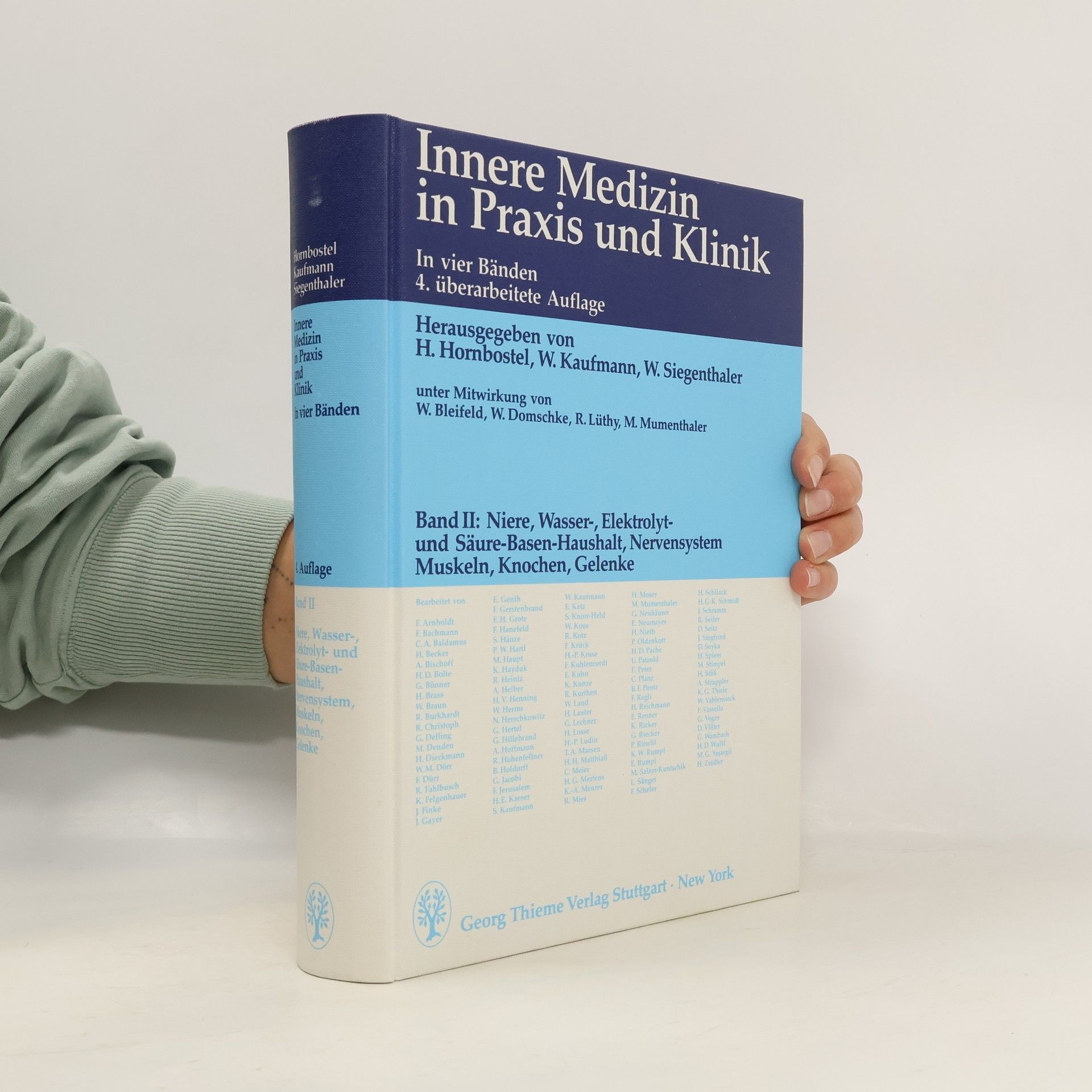Innere Medizin in Praxis und Klinik
4. überarbeitete Auflage - Niere, Wasser-, Elektrolyt- und Säure-Basen-Haushalt, Nervensystem Muskeln, Knochen, Gelenke
- 1048 páginas
- 37 horas de lectura


4. überarbeitete Auflage - Niere, Wasser-, Elektrolyt- und Säure-Basen-Haushalt, Nervensystem Muskeln, Knochen, Gelenke
Niere, Wasser-, Elektrolyt- und Säure-Basen-Haushalt, Nervensystem, Muskeln, Knochen, Gelenke : [mit] 79 Tab. / unter Mitarb. von K. F. Albrecht [u.a.]